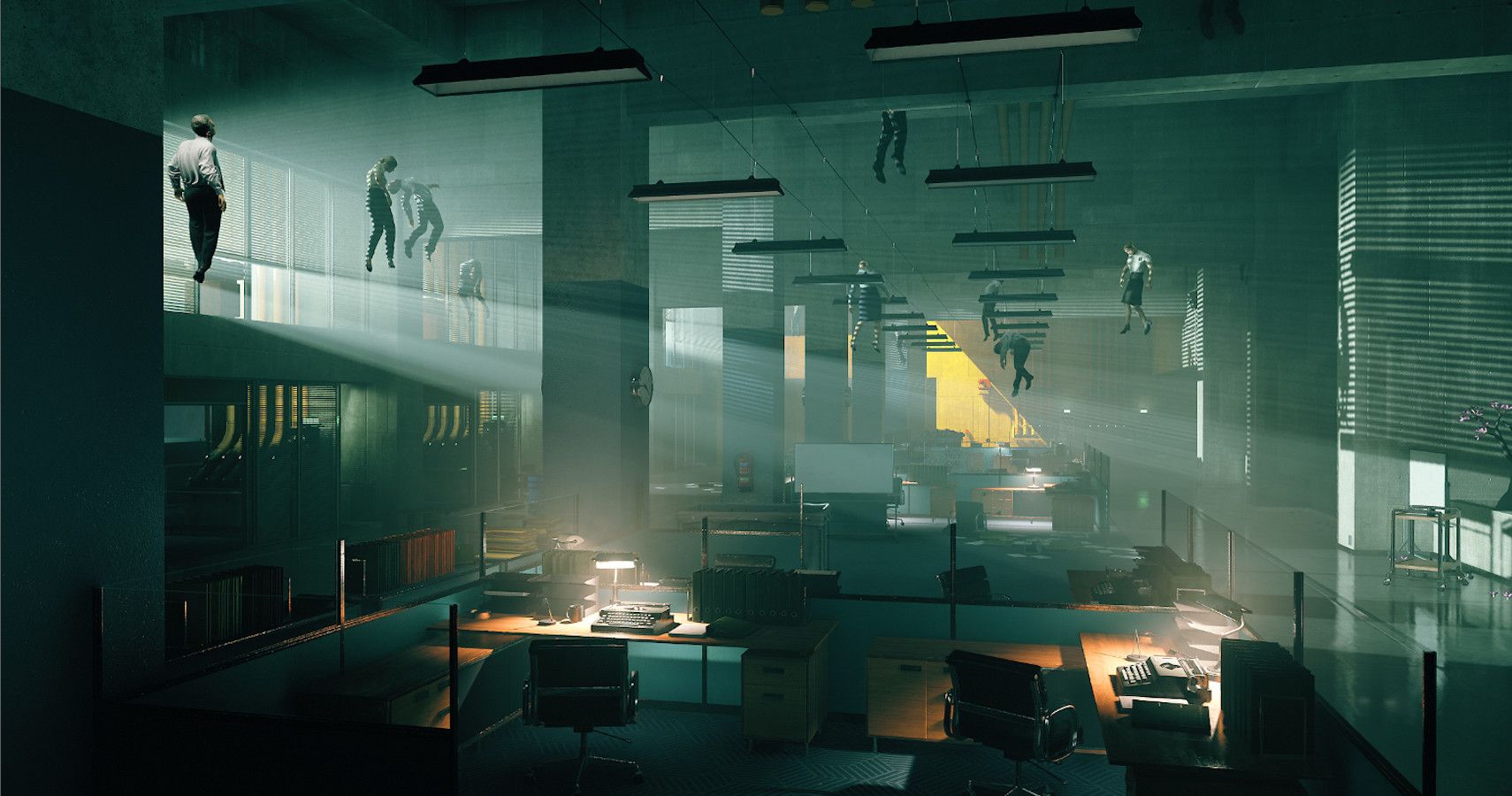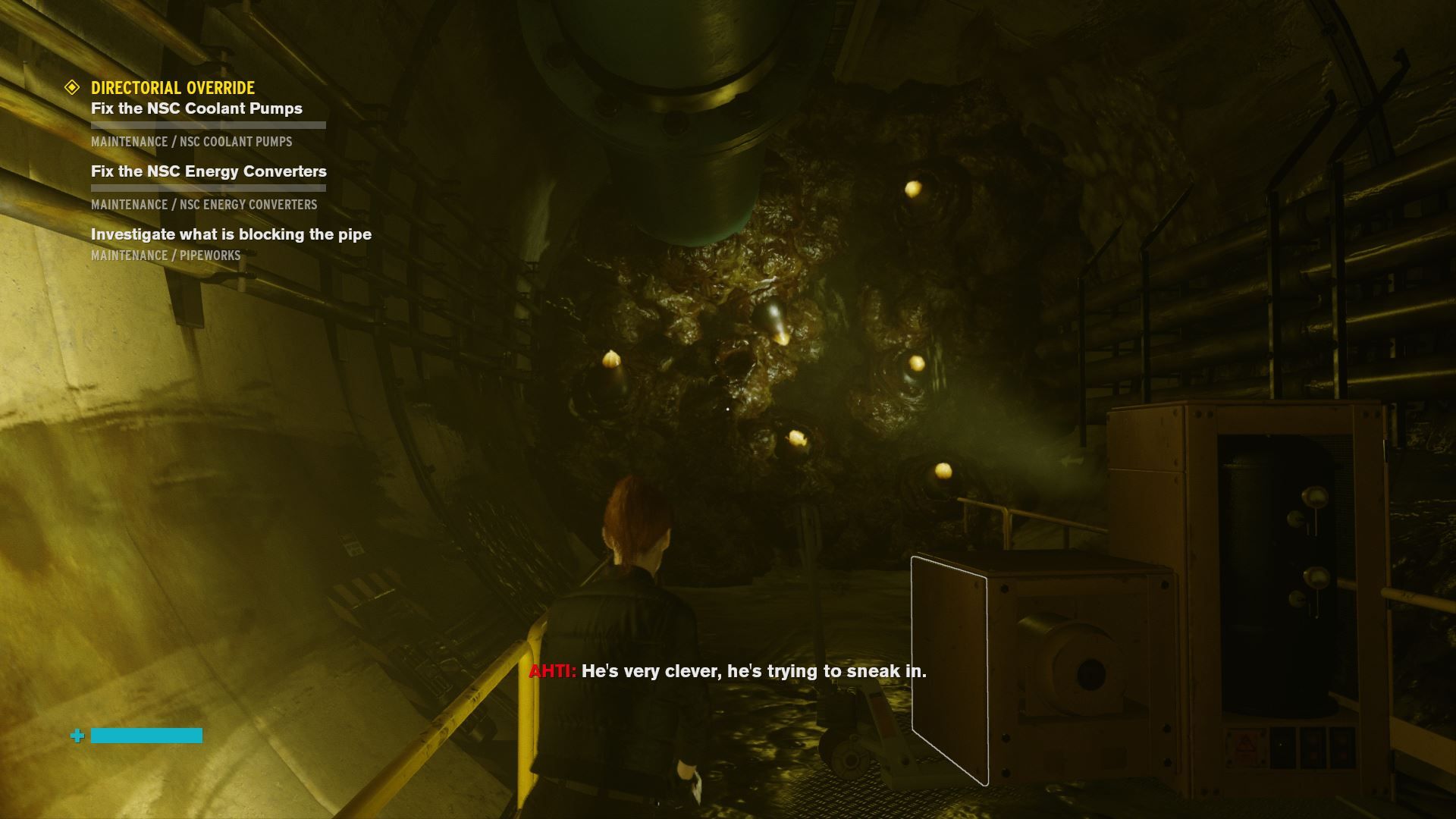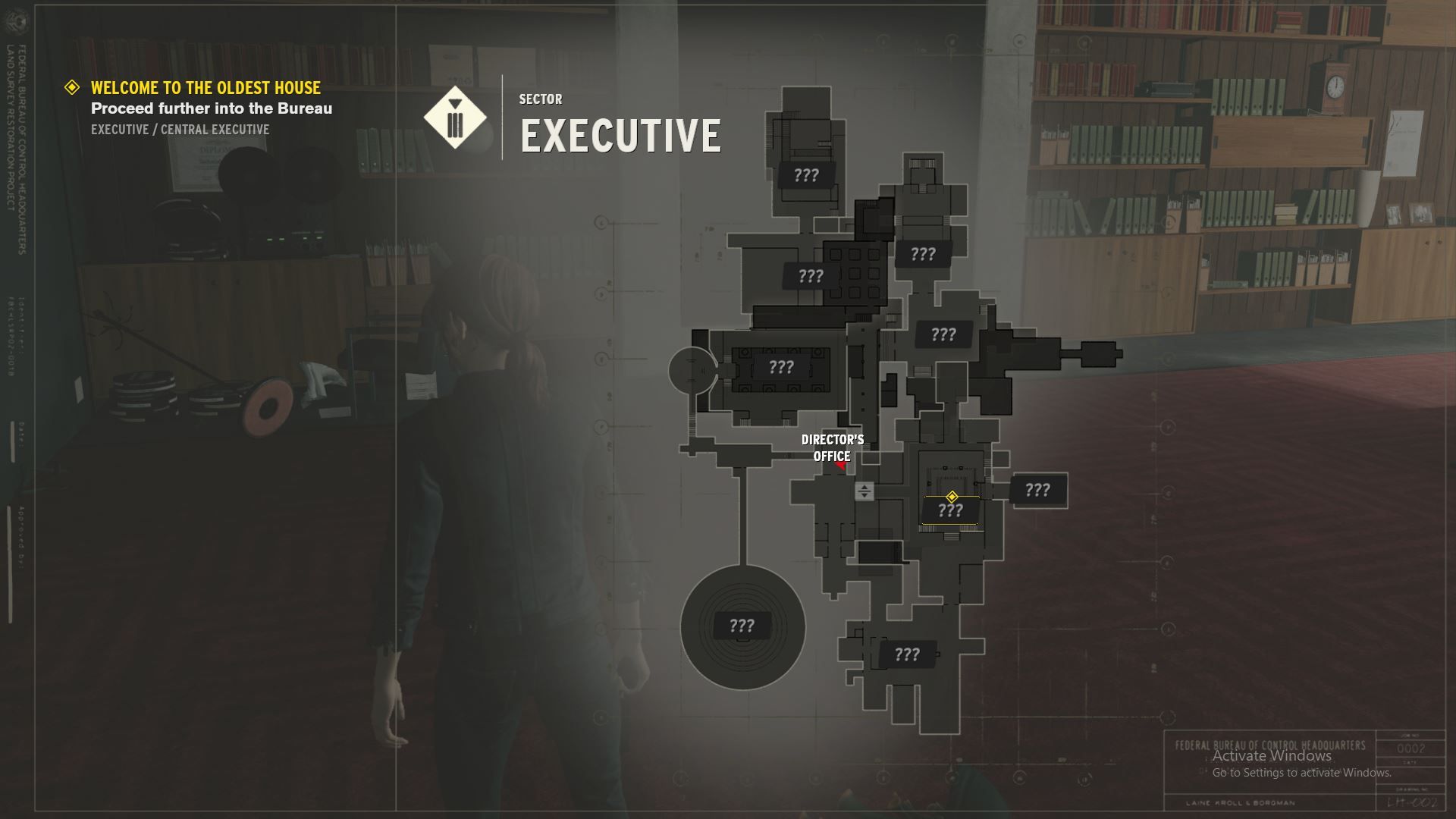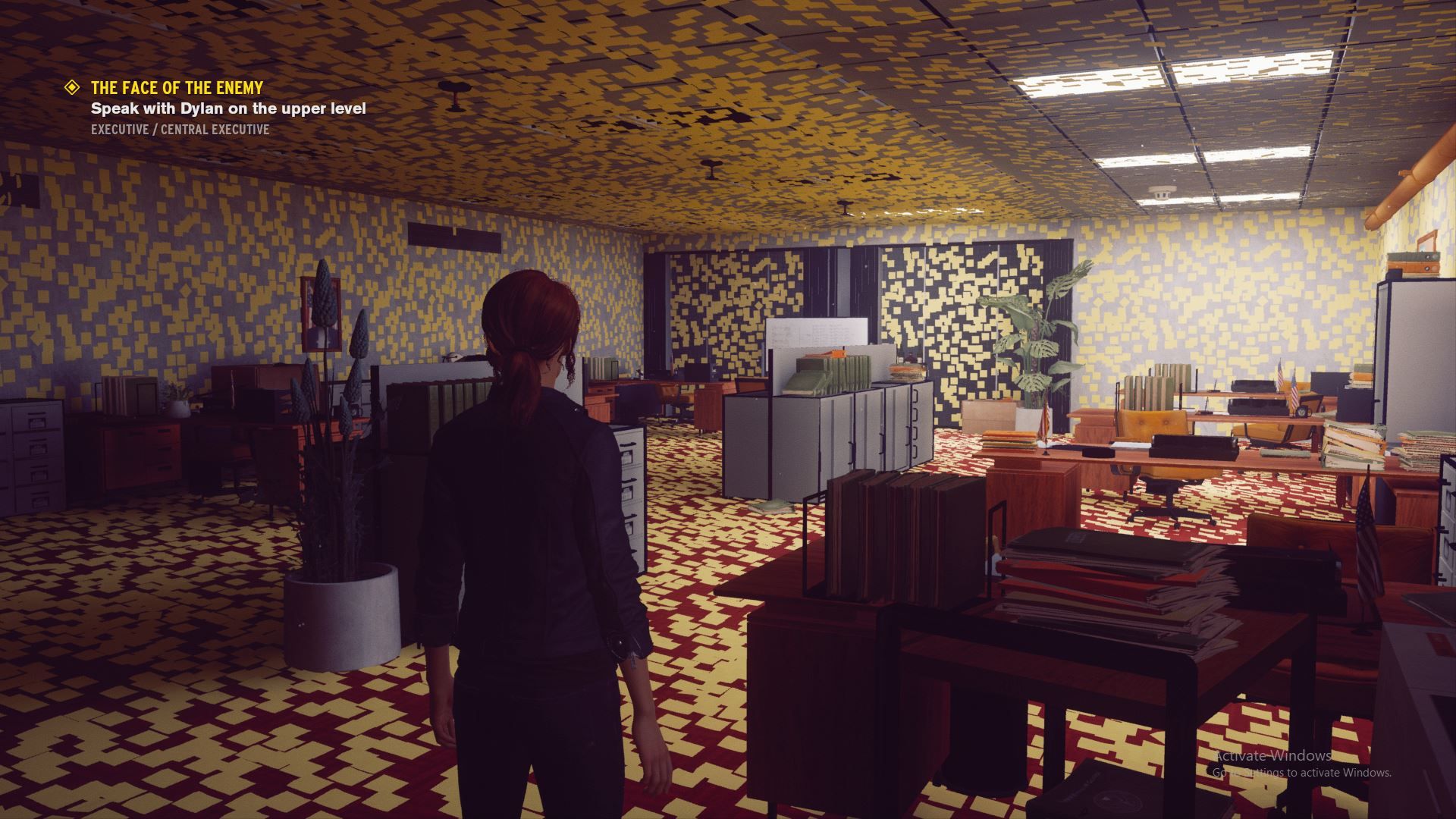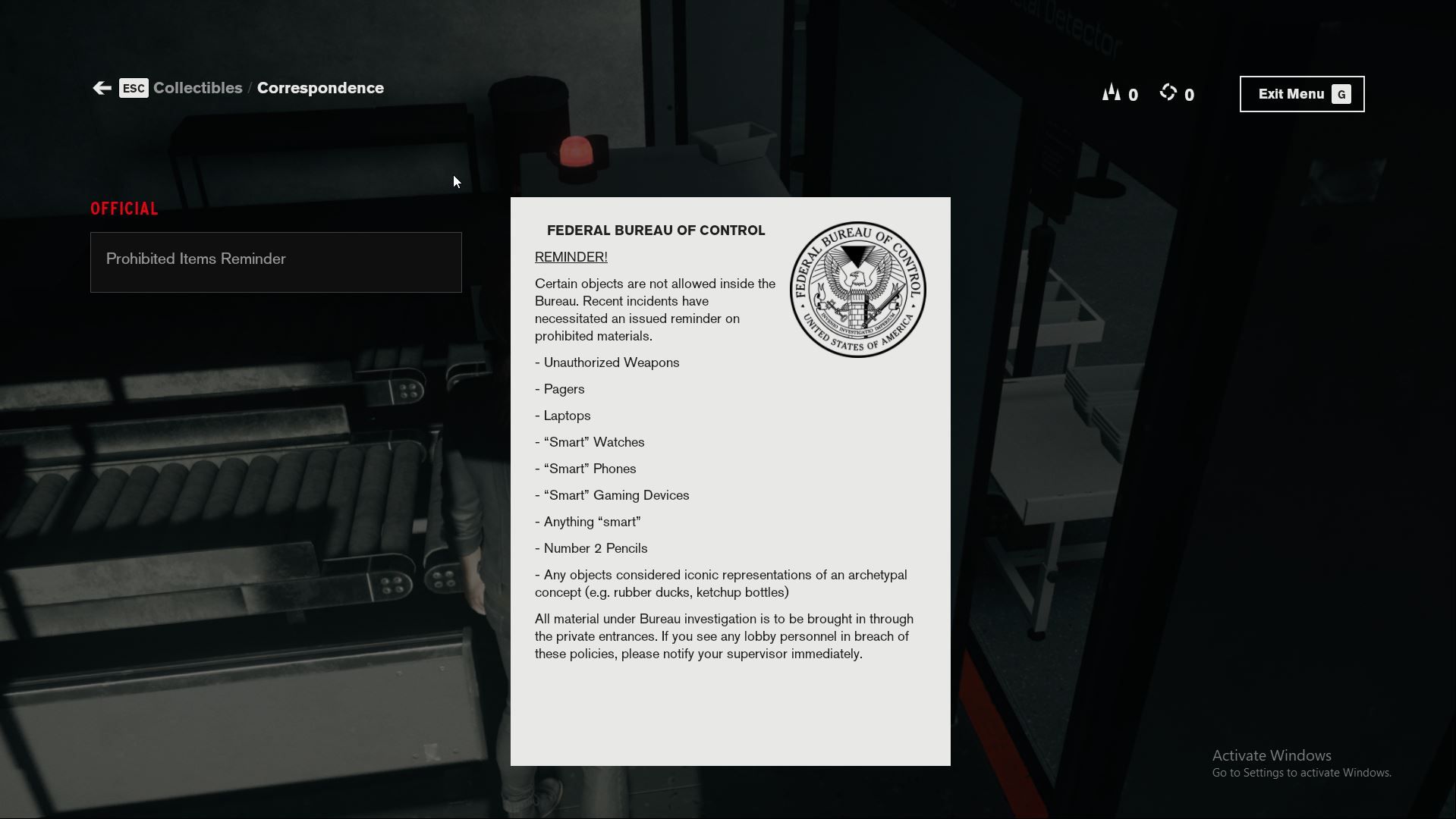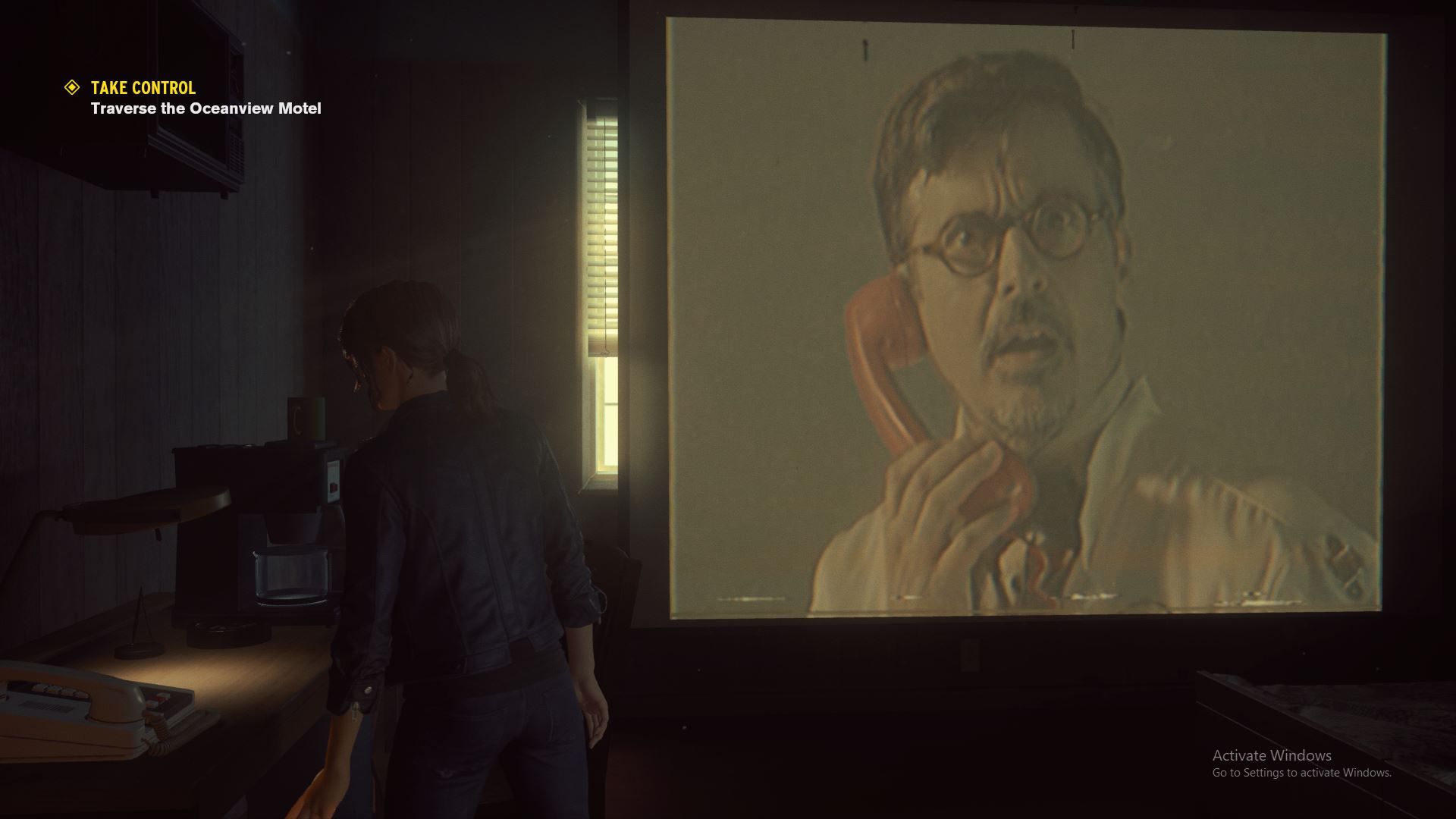Control is a third-person shooter from Finnish game studio, Remedy Entertainment. Control is a sci-fi, horror-lite game that fits in with the studio's previous two titles Alan Wake and Quantum Break as a sort of trilogy of the metaphysical. As a new IP, Control has a lot of original ideas and some really strong world-building. Unfortunately, the game never quite reaches its full potential, with combat, exploration, progression, and narrative each leaving quite a bit to be desired.
The game takes place entirely within the Federal Bureau of Control, a secret government facility that protects and studies objects of power and otherworldly events. You play as Jesse Fayden, a young woman who has been guided to the FBC by a shimmering-spirit she calls, Polaris. As children, Jesse's brother was taken by the FBC when the siblings came into contact with an object of power, and Jesse has been looking for her brother ever since. Jesse immediately discovers the director of The Bureau has killed himself and, by picking up his service weapon, Jesse becomes the new director. The Bureau is under attack by an otherworldly force known as The Hiss. To find her brother, Jesse must fight against The Hiss and restore control to the FBC.
As she explores the facility fighting hiss-possessed FBC employees with her service weapon, Jesse comes across objects of power that grant her abilities such as telekinesis and mind control. The five or so departments of the FBC must be explored and decontaminated of The Hiss by using these abilities (and guns) to destroy a small variety of enemy types.
Progression Problems
Progression in Control is tied to two systems: ability points and mods. Ability points are used to upgrade your health, melee damage, and each of the superpowers you'll find. Ability points are earned by completing main missions and side quests, as well as finding secret areas once you've completed the game. The upgrades are linear: do X% more damage with telekinesis, or mind control an enemy for X seconds longer. There are two or three upgrades that provide a new facet to an ability, such as the ability to throw low-health enemies with your telekinesis, but the entire skill tree is uninteresting and feels unimpactful.
The mod system is even more problematic and ties into the problems I had with exploration. Mods come in two types, weapon mods and personal mods, and can be found in loot chests dropped from enemies or purchased at random. The mods offer incremental passive benefits such as faster energy recovery or increased headshot damage. Even after unlocking all three mod slots for a weapon, these upgrades feel even less impactful than the ability point upgrades. They're bland, almost unnoticeable, and didn't change my playstyle in any way.
These mods (and bits of lore) are the sole reward for exploration around the FBC. As you are granted higher levels of security by advancing the story, you'll have the opportunity to go back and open doors that were previously locked. If you do, all you'll be rewarded with is another banal mod to either use or crush into currency that can be used to buy another useless mod, or upgrade your gun with an additional mod slot for another useless mod.
Combat Qualms
Ripping satellite dishes off of structures and hurling them at enemies feels great. I never got tired of using an enemy's rag doll corpse to take out another enemy, either. That's the extent of how interesting combat can get, unfortunately.
The five guns - pistol, shotgun, sub-machine gun, sniper, and rockets - are generic, but situationally satisfying. They add variety to combat in the sense that shotgun and rockets won't work on flying enemies, and the sniper is too slow to use on the exploding enemies that try to mob you, but that's about all there is to say about the guns.
The abilities, besides telekinesis, are all pretty basic or just plain un-fun. Jesse has a dash, which can be used on the ground or in the air to dodge; a barrier, which negates damage but prevents any other actions; mind control, which turns enemies to your side temporarily; and levitate, which allows Jesse to slowly float through the air for a short time.
The barrier is helpful for getting to health drops when you're low, but killing guys works a lot better than stopping their bullets for a short time. Flying feels bad, and fighting in the air is too difficult. The best use for it is to temporarily pop up from behind cover and hurl something with your telekinesis, but if you're in the air for more than a second, you're going to get killed. The dash is a dash, and mind control is mind control.
Basically, every combat encounter is about managing your cool down between ammo refill and telekinesis. Throw something, shoot a couple of times, throw another thing, done. Combat just isn't that particularly inspired in Control.
Weirder Things
Control is firmly planted in the genre of Weird Fiction, a sort of nebulous term for stories that take place in a modern world where regular people are faced with something decidedly other. Control takes many ques from SCP Foundation, a crowdsource Creepy Pasta-spin off that catalogs otherworldly events and creatures.
The problem I have with Control is how short-sighted and tonally inconsistent it is. The corporate-structure-built-on-dark-machinations isn't anything new. Doom did it with the UAC. Heck, even Angel did it with Wolfram & Hart. With the exception of two fantastic sequences, the ashtray maze and the Oceanview Motel, Control doesn't get weird enough. There's plenty of weird in the lore spread around the facility, but these are only mentions of things you'll never see. Once you've seen one group of government employees floating contortedly in the air chanting in unison, you've seen them all.
Control looks like everything I want from a new sci-fi/horror IP, but misses the mark in pretty much every avenue. It feels like a good start that doesn't come together, which, unfortunately, is accentuated by the anti-climatic ending. This is the kind of game that gives me high hopes for the sequel, but they need to work on the progression and combat, and make an actual Metroidvania if they're going to call it a Metroidvania.
3.5 Out Of 5 Stars
A review copy for Control was purchased by TheGamer for this review. Control is available now for the PlayStation 4 and Xbox One.
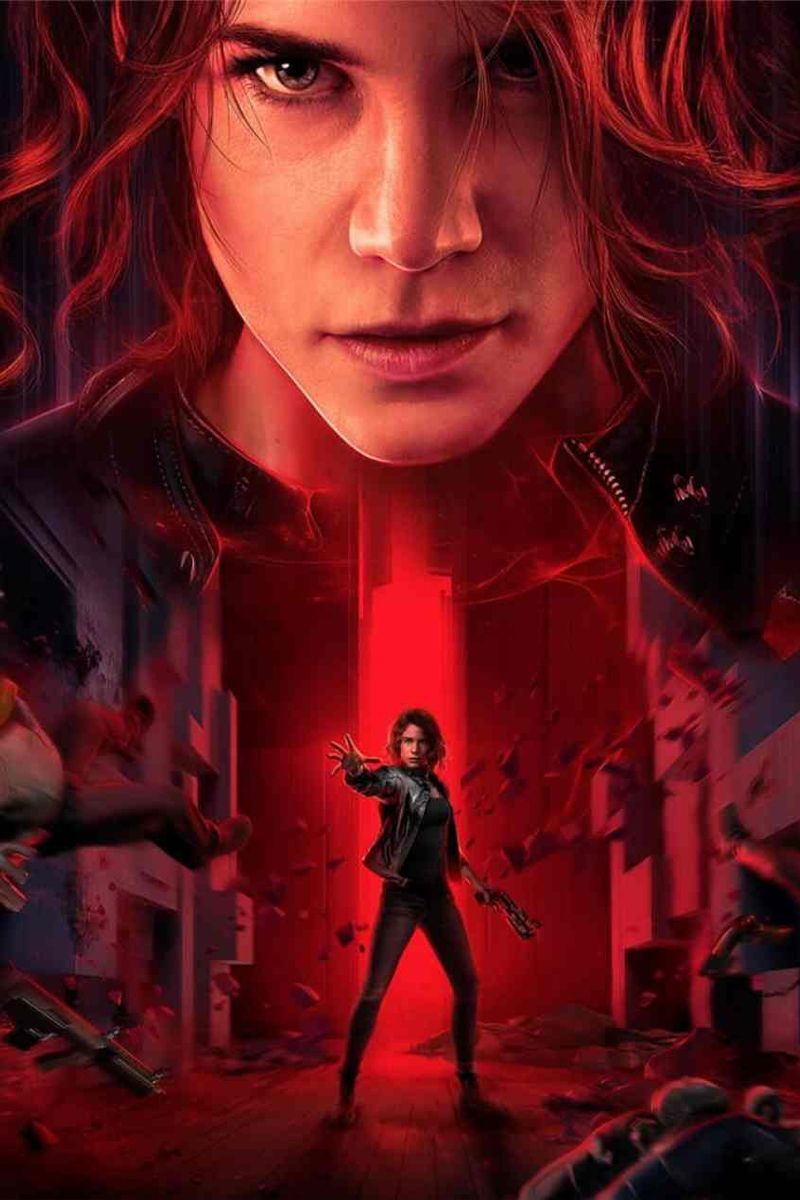
Control
Control puts you in the shoes of Jesse Faden, the newly installed Director of the Federal Bureau of Control. You must explore the organization's headquarters, uncovering its mysteries and contending with a supernatural force named the Hiss.

